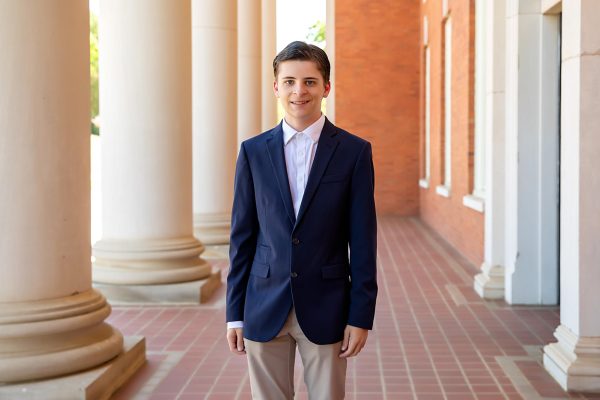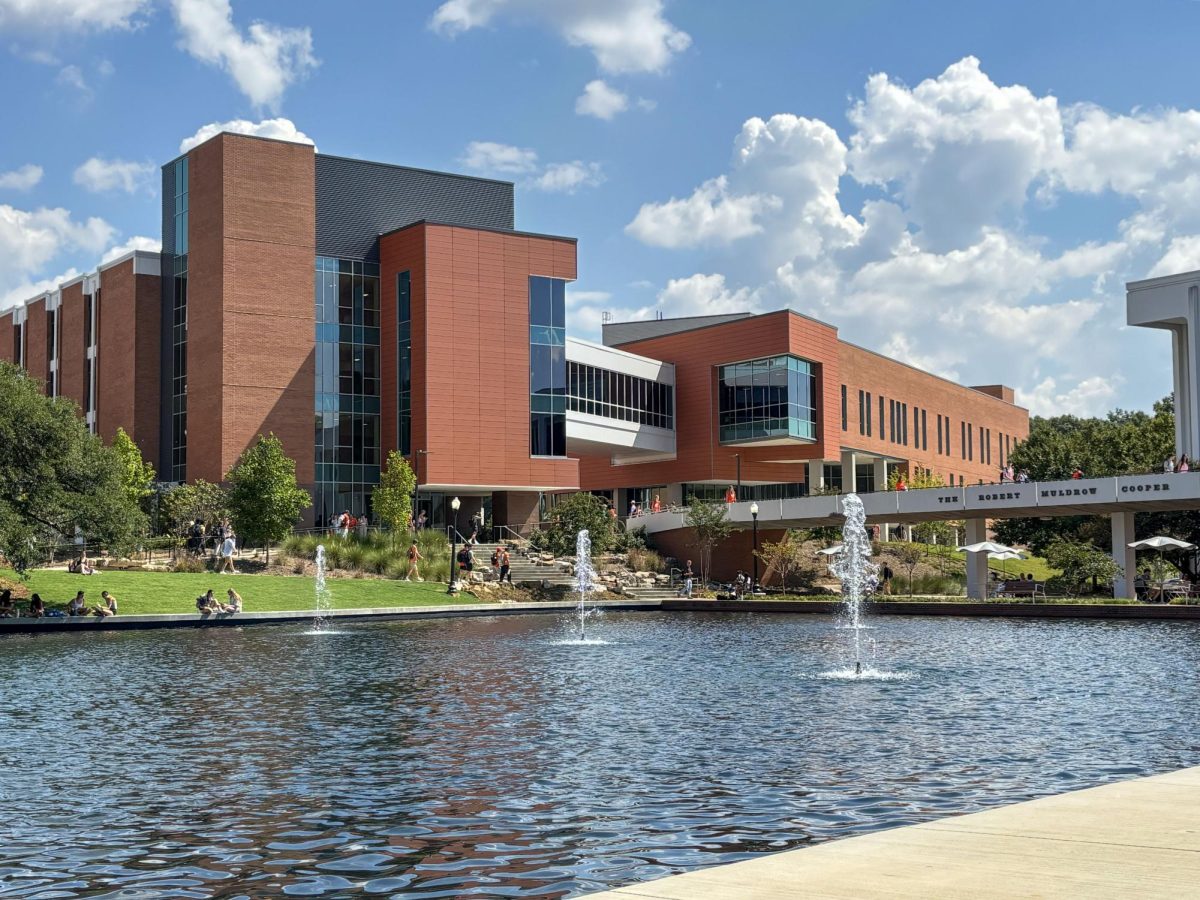Current Secretary of Health and Human Services Robert F. Kennedy Jr. is back in the news again, and to no one’s surprise, he’s found himself there by spouting inane pseudoscience that no doctor worth their license would even consider subscribing to. Kennedy’s one-man crusade against autism will soon culminate in an official report that enshrines into our government’s annals a litany of highly dubious conclusions that advance retrograde and honestly rather baffling ideas about what autism is and what causes it.
I recognize that, to most readers of this column, Kennedy’s unscientific posturing is totally abstract, with no real effect on your lives, but that’s not at all the case for me. I was diagnosed with autism at age 8, and in the intervening years, I have read and learned as much as I can about what exactly that term signifies, including Steve Silberman’s very digestible book “NeuroTribes: The Legacy of Autism and the Future of Neurodiversity,” which I recommend to anyone who wishes to actually understand autism and its study. For me, and for people like me, Kennedy’s meddling with autism research is as real and immediate as it gets.
Autism research has been defined by controversy and inadequacy since its inception in the early 20th century. The term’s originator, Leo Kanner, developed an extremely narrow definition of autism and attributed the disorder to insufficiently warm parenting while totally disregarding female patients. At around the same time, Austrian physician Hans Asperger made great strides in autism research before sending many of his patients to be experimented on and murdered by the Nazis during the Holocaust.
It wasn’t until the 1970s that the modern conception of autism began to emerge. British psychiatrist Lorna Wing, whose daughter Susie was autistic, greatly broadened the definition of autism through extensive data analysis that suggested the spectrum model. Her research coincided with the first significant push to investigate potential biological causes of autism, and these two branches of autism research are the sources of most contemporary scholarship.
The major exception to this rule is disgraced former doctor Andrew Wakefield’s fraudulent 1998 study into vaccines and autism, which has been extensively discredited. Journalist Brian Deer found that Wakefield’s methodology was flawed and potentially unethical, and that Wakefield had significant conflicts of interest. Additionally, the chemical that many anti-vaccination advocates cite as a cause of autism, thimerosal, was removed from vaccines in 1992, before many of the children involved in Wakefield’s study had even been born, let alone vaccinated. No subsequent study has managed to replicate Wakefield’s results, but that hasn’t stopped his terrible science from being used to undermine autism research in the 27 years since its publication.
A 2021 study of public sentiment regarding autism found that Wakefield’s study inspired a significant and widespread uptick in anti-vaccine rhetoric and belief in the United States, which resulted in decreased vaccination rates and higher rates of preventable diseases like measles. Incidentally, measles outbreaks have massively increased in frequency and severity since Kennedy assumed office earlier this year. There have been more measles cases in 2025 than in any other year since 1992. Kennedy recently announced that he was initiating an inquiry into the link between vaccines and autism.
There are few people on this earth that I personally despise more than Andrew Wakefield, because his paper has defined and limited discussions around autism for the entire time that I have been alive. While researchers like Lorna Wing understood the fundamental humanity of autistic people and our potential to serve as unconventional but vital members of society, Wakefield and his misguided acolytes have fomented an atmosphere of ableism that perceives autism as a terrifying shadow waiting in the wings to interrupt “normal” social order.
It is this perspective that Kennedy played into when he vowed to determine the causes of autism and how it can be combatted. To him, autism isn’t a complex disorder worthy of study; it’s an epidemic disease to be annihilated. Curiously, Kennedy seems very sure of exactly what his conclusions will be once the study is finished: a memo reported on by Axios suggests that Kennedy will claim that there is a link between acetaminophen use and autism.
I’m no scientist, but if I recall anything from high school biology, it’s a foundational idea that you never know what results your trial will produce. As far as I’m aware, the entire purpose of a hypothesis is that you don’t know whether or not it’s true until after you’ve carried out your experiment. As Autism Science Foundation founder Alison Singer told CNN, “It’s highly unusual to announce you have the results of a study before the study even begins.” Forgive me, then, if I’m a bit skeptical about the veracity of Kennedy’s conclusions.
To put it as plainly as possible: either Kennedy is misguided, or he is lying. Legitimate scientific evidence uniformly suggests a variety of factors that influence the development and severity of autism. Its high heritability suggests a genetic component, while other evidence points to external environmental factors that also play a role. There is, however, no science that convincingly supports a link between any kind of pharmaceutical and autism spectrum disorder.
All studies that suggest any such link have been subject to, and crumpled under, intense scrutiny. In most cases, including the case of the studies on autism and acetaminophen that Kennedy will likely cite in his report, these studies have ignored the possibility of genetic factors and mistaken correlation for causation. They are uniformly weak studies, especially in the face of the robust scientific evidence suggesting other probable causes.
Kennedy’s inquiry into the causes of autism is being led by the controversial anti-vaccine doctor David Geier. The reason that Geier is a controversial choice is that his ideas have no basis in reality, as well as the fact that he was “disciplined by the Maryland State Board of Physicians for practicing medicine without a license.”
Again, I am not a scientist, but I fear that Geier may not be the best person to lead a study of this nature. Geier has advocated for some truly disturbing autism treatments, including chemical castration, and the National Academy of Medicine has characterized his work as “so flawed as to be uninterpretable.”
Forgive me for my histrionics, but I’m a bit perturbed by the concept of a man who would have chemically castrated me to try and “cure” a fundamental aspect of my brain structure, leading an inquiry into the disorder that has, for better and worse, defined my existence.
Even if autism was caused by pharmaceuticals — which it unequivocally is not — I would still be concerned by the tenor of Kennedy and his associates’ rhetoric. Autism is an extremely complex condition, and the social difficulties associated with the disorder don’t exist in a vacuum. Social interaction is inherently a reciprocal process, so the allistic world has some culpability for the severity of autistic individuals’ social dysfunction.
If the cultural conversation around autism is defined by fearmongering, a lack of understanding and a focus on “curing” autism, then the autistic experience will become even more difficult and frustrating. It’s already hard enough for us to understand and integrate with a world that is fundamentally not built for us; making that world overtly hostile would only exacerbate the issue.
I hope that someday I will be able to retire from writing articles like this. In an ideal world, productive autism research would focus on creating a world in which we understand the causes of autism to better accommodate autistic people, rather than to attempt to control and eliminate them. Unfortunately, we do not live in that world. Instead, we live in a world in which the chief health officer of the most powerful nation on earth has dedicated the might of the United States’ medical industrial complex to fruitlessly attempt the eradication of a condition that he does not even begin to understand.
It is a world that I am ashamed to live in, and you should be too.
Thomas Merzlak is a junior world cinema major from Florence, South Carolina. Thomas can be reached at [email protected].

















Doug Fraser • Sep 20, 2025 at 11:41 am
Brilliant article Thomas. Don’t know if being a journalist is in your sites but you’d obviously make a primo good one and boy do we need many of those, now more than ever. I look forward to following your work!
John Merzlak • Sep 19, 2025 at 3:54 pm
Well put Thomas, every member of congress that voted for this guy should read this.
It’s unfortunate that you still have to write articles like this but you teach so many of us about autism when you do.
Keep up the good work & standing up for what’s wrong.
Steve • Sep 19, 2025 at 3:39 pm
Extremely well written Thomas
Ann Mitchell • Sep 19, 2025 at 2:55 pm
Well done, Thomas. It’s not too late to go into research. You would be awesome. However, your gift of intelligence and ability to get your point across is very important, too. You are awesome!